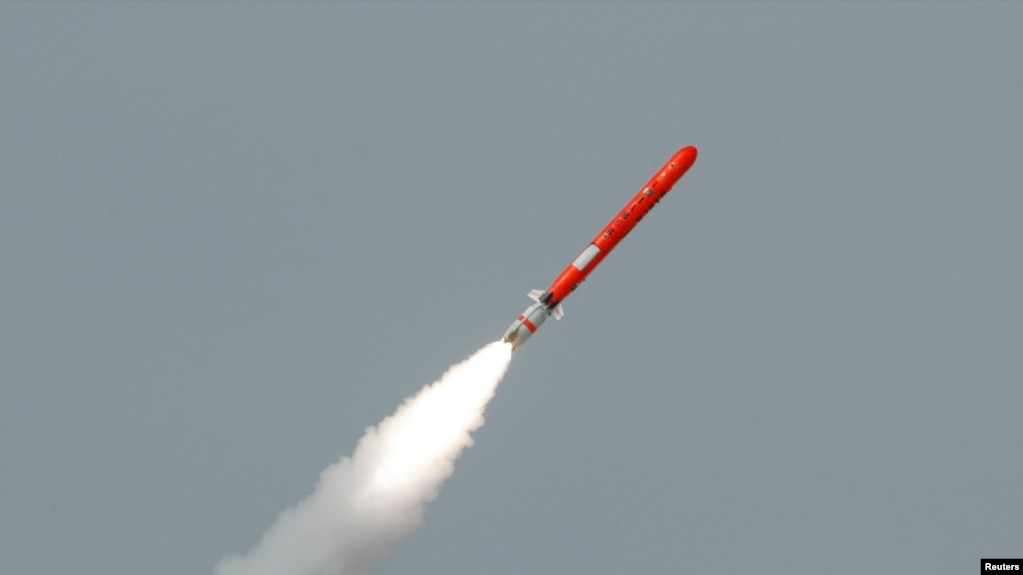ISLAMABAD —Pakistan announced Thursday that it had successfully conducted another test-firing of a nuclear-capable, submarine-launched cruise missile (SLCM), which has a range of 450 kilometers.
The indigenously developed Babur missile was fired from an underwater platform and "engaged its target with precise accuracy," a military statement said.
The rocket is capable of delivering "various types of payloads" and provides Pakistan a "credible" second-strike capability.
Military spokesman Major-General Asif Ghafoor, while referring to the country's archrival India, said the development of Babur was a response to "provocative nuclear strategies and posture being pursued in the neighborhood." He also released some footage of the testing.
Pakistan said its nuclear and missile development programs are India-specific and have effectively deterred the bigger neighbor, with its larger military power, from imposing another war on the country.
"When it comes to responding to India for their threat, anything and everything that we have is for them and for nobody else," Ghafoor told reporters a day earlier.
Military tensions are running high over the divided Kashmir region, which has caused two of the three wars between nuclear-armed India and Pakistan.
Both South Asian nations are locked in almost daily skirmishes along the Line of Control, which separates Pakistan's portion from the Indian-ruled two-thirds of the Himalayan region.
Meanwhile, earlier this week the United States imposed sanctions on seven Pakistani companies for alleged links to the nuclear trade.
The Commerce Department's Bureau of Industry and Security (BIC) places those companies on its Entity List, which the U.S. uses to identify foreign parties that are "acting contrary to the national security or foreign policy interests of the United States," the BIC website explains.
The indigenously developed Babur missile was fired from an underwater platform and "engaged its target with precise accuracy," a military statement said.
The rocket is capable of delivering "various types of payloads" and provides Pakistan a "credible" second-strike capability.
Military spokesman Major-General Asif Ghafoor, while referring to the country's archrival India, said the development of Babur was a response to "provocative nuclear strategies and posture being pursued in the neighborhood." He also released some footage of the testing.
Pakistan said its nuclear and missile development programs are India-specific and have effectively deterred the bigger neighbor, with its larger military power, from imposing another war on the country.
"When it comes to responding to India for their threat, anything and everything that we have is for them and for nobody else," Ghafoor told reporters a day earlier.
Military tensions are running high over the divided Kashmir region, which has caused two of the three wars between nuclear-armed India and Pakistan.
Both South Asian nations are locked in almost daily skirmishes along the Line of Control, which separates Pakistan's portion from the Indian-ruled two-thirds of the Himalayan region.
Meanwhile, earlier this week the United States imposed sanctions on seven Pakistani companies for alleged links to the nuclear trade.
The Commerce Department's Bureau of Industry and Security (BIC) places those companies on its Entity List, which the U.S. uses to identify foreign parties that are "acting contrary to the national security or foreign policy interests of the United States," the BIC website explains.
 Pakistan Tests Sub-Launched Nuclear-Capable Cruise Missile
Pakistan Tests Sub-Launched Nuclear-Capable Cruise Missile
No comments:
Post a Comment